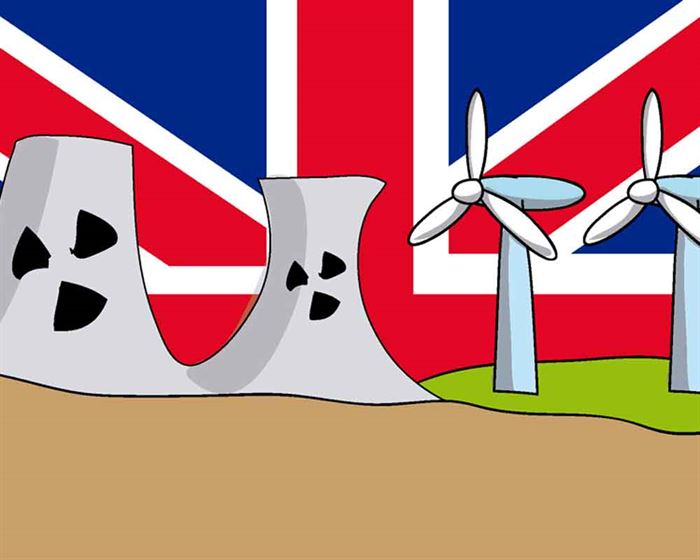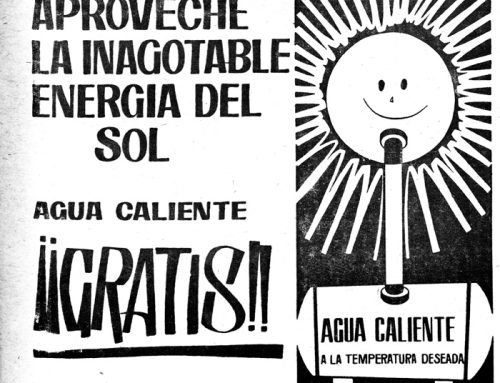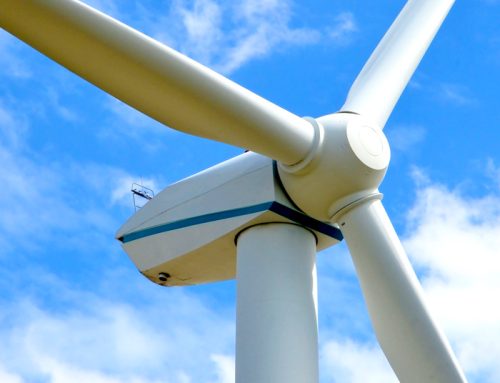Why does the UK government want to pursue nuclear energy rather than renewable energy?
09/12/2016
Tiempo de lectura: 4 minutos
Despite the UK government commitment to the 2008 climate change act and various other international treaties including the Paris agreement since being elected in may 2015, it has cut subsidies to renewable energy. Under the previous coalition government plans for a new nuclear power station Hinckley point C were announced. The government since then have invested more money into switching the UK from Carbon to Nuclear rather than to renewable energy.
Although previous safety history of nuclear energy, nuclear energy is not that uncommon. In 2011 it powered 12.3% of the world total electricity supply. There are many nuclear power stations across the UK, however, they are from older generation reactors and have been decommissioned. Hence the proposal to build Hinkley point C. Hinkley point C proposals is currently owned by the French energy supplier EDF, which was bought in recent years. The power station is mostly being funded by the Chinese due to agreements with the government.
The main reason the UK government has decided to attempt its switch to nuclear power is that nuclear power is strong enough to create a baseload source of electricity. This baseload source is in some ways a backup on the national grid. It means that if other sources fail the nation is still powered. Renewable energy is too unpredictable to create this base load source. This suggests that nuclear and renewable energy could, in fact, work together with the right amount of funding.
Despite this, the thought of nuclear energy does seem concerning. The idea of non-declared nuclear weapon states using nuclear power plants could appear to be a security threat. However, the government states that nuclear power is not a threat to our security due to the way in which the energy is created. In order to create nuclear energy atoms are split. When done in a power plant this is done in a controlled environment, meaning that if safety procedures are followed there is little safety issues. When creating a nuclear bomb the atoms re-split in a non-controlled environment, this is what create the explosion.
However, in past issues with nuclear power, there has been more of an effect on the environment than burning fossil fuels. Some officials have suggested that rather than investing in nuclear power the government should invest in attempting to clean our current forms of carbon emissions. However, this does not solve our current energy crisis due to limited fossil fuels. The main issue with nuclear energy is the waste it produces. Nuclear waste stays radioactive for many years and must be buried securely. Previously the government resorted to storing nuclear waste in the ocean, however, nuclear waste should be stored away from water as there is a possibility it could populate the water. With the size of the UK, however, there are very few options as to how nuclear waste can be stored.
Nuclear energy was essentially proposed due to its cost compared to that of renewable energy. However, it was recently been announced that renewable energy is, in fact, cheaper, mostly due to the cost of decommissioning nuclear plants. Due to updates in technology and safety precautions, nuclear plants must be decommissioned and rebuilt every few decades. It also takes up to 20 years from the first proposal of a nuclear plant to build it and have in working order. This showed that the government might not be thinking through the idea of nuclear energy.
One other reason for the switch to nuclear is the opposition and issues with many forms of renewable energy, not only is it unreliable but it can be costly. There is also opposition to the “eyesores” of wind farms and hydro-electric plants. Hydroelectric plants can also cause environmental damage as they have to flood certain areas via a dam. Nuclear plants must be built away from communities meaning there is less opposition as the public will not see the plants “eyesore” and its environmental impact.
Overall there are many issues with nuclear energy. However, the benefit of a baseload energy source is too useful to not invest. Despite this renewable energy is still the way forward in cutting emissions and creating a non-carbon economy. Nuclear and renewable energy can, in fact, work together. In many ways, the Uk is perfect for many forms of renewable energy. For example, tidal currents from the north sea are ideal for tidal energy and offshore wind farms. The Uk has many rivers meaning further investment into hydro-electric plants are possible. It is true that renewable energy does have some impacts on the environment , however, so does all forms of energy creation. No solution is perfect and all will have some form of impact. However, by creating a system where we use nuclear and renewable energy together it is possible to cut costs and emissions in order to create a carbon-free economy.



Can be the mix Nuclear&Renewable the solution for a carbon free economy? Indeed, but with one condition: not to build new nuclear plants ever. Today, the path seems clear: build a strong renewable power grid and close gradually all the nuclear plants. The argument of unpredictability of renewables y easily overpassed with the concept of “virtual renewable energy plant”, a mix of wind, solar, biomass and hidro that is invulnerable to the climatological changes: if there is not wind, there are sun, or biomass…
To build a new nuclear installation today, in 2016, is to add a new cumbersome thing to vigilate and dismantelling ( in the year 2066…)